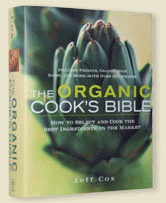Now You Also Can’t Know Where Your Meat Comes From
Organic Lifestyle Comments Off on Now You Also Can’t Know Where Your Meat Comes From
Hidden in the 2,000 pages of the $1.14 trillion spending bill that Congress recently passed and President Obama signed into law is a provision that repeals the Country of
Origin Labeling Law (COOL). From now on, not only can’t you know whether your food is genetically modified, now you can’t know where the meat at your market comes from, either.
COOL had become a major irritant to Canadian and Mexican meat producers because those countries considered it to be a thinly-disguised barrier to U.S. domestic consumption of their meat products. In other words, U.S. citizens who chose to “eat American” were unfairly hurting Canada and Mexico business interests, so those countries ran to the World Trade Organization (WTO) and complained.
The WTO agreed with Canada and Mexico and granted those countries the right to impose $1 billion in punitive tariffs on various U.S. products after ruling that the country-of-origin labeling provisions on beef and pork products violated international trade rules.
Canada’s International Trade Minister Chrystia Freeland and Agriculture Minister Lawrence MacAulay called the WTO decision, “a great day for Canada.” Freeland added that “This is a real vindication of the power and significance of the WTO dispute-resolution mechanism.” I’d correct that to read, “This is a great example of the power of the WTO to impose itself on the sovereign rights of Americans to know where the hell their meat comes from.” If you think this WTO ruling is an imposition on American sovereignty, wait until you see what the Trans-Pacific Pact does. While this may well be “a great day for Canada,” it’s not so much for American consumers.
Canada will be keeping a watchful eye on your local meat case to make sure we aren’t cheating by slapping a “locally-grown” sticker on your chateaubriand. As Ag Minister MacAulay said, “We will be monitoring the situation to make sure there are no problems in this area.”
The ministers thanked Canadian diplomats and some American politicians and industries that supported doing away with COOL. And who might those American politicians be? Well, Republicans, of course. Kansas Sen. Pat Roberts, the Republican chair of the Senate’s powerful agriculture committee, expressed “relief” at the news of the WTO ruling.
The ruling opens the floodgates for widespread retaliation by meat producing countries should Americans learn from whence their meat is sourced. By “widespread,” the Canadians said and the WTO agreed that targeted U.S. products include not only agricultural ones such as cattle, pork, apples, rice, maple syrup, and wine, but extend to non-agricultural products, such as jewelry, office chairs, wooden furniture, and mattresses. “Dear Mr. and Mrs. America, since you’ve discovered that your scrapple doesn’t really come from Philadelphia, but rather from a meat factory in Mexico City, that knock-off Knoll office furniture we make in Jalisco will now cost you three times as much as the real thing. Sorry. WTO tariff. Not our fault.”
Despite Canada’s win, Trade Minister Freeland said Canada still intends to obtain formal approval from the WTO for retaliation, even though the tariffs won’t be imposed. “We think that it is prudent of us to take the legal process to its formal, technical conclusion,” she said, barely concealing the economic club she’s hiding behind her back.
That spending bill, by the way, includes $680 billion in corporate tax cuts. No wonder Congressional Republicans “expressed relief.”
***
PINEAPPLE PESTICIDE LINKED TO PARKINSON’S DISEASE
According to Maggie Fox on MSNBC, a pineapple pesticide that made its way into milk in Hawaii also made its way into men’s brains, and those men were more likely to develop Parkinson’s disease.
This result is the latest in a very long series of studies linking various pesticides to Parkinson’s, which is caused by the loss of certain brain cells.
And the study also seems to support a mystifying observation: smokers seem to be protected against Parkinson’s.
For the study, Dr. Robert Abbott of the Shiga University of Medical Science in Otsu, Japan, and colleagues studied 449 Japanese-American men living in Hawaii who were taking part in a larger study of aging. They gave details of how much milk they drank as part of a larger survey, and they donated their brains for study after they died.
The men who drank more than 16 ounces of milk a day had the fewest brain cells in a part of the brain called the substantia nigra, which is damaged in Parkinson’s, they reported in the journal Neurology.
The researchers also looked for the pesticide heptachlor, which was taken off the market for most uses in the U.S. in 1988.
“Among those who drank the most milk, residues of heptachlor epoxide were found in nine of 10 brains as compared to 63.4 percent for those who consumed no milk,” the researchers wrote.
It’s known the milk in Hawaii was contaminated, probably from the feed given to the cattle. “The researchers could not test whether the milk the men drank was contaminated with pesticides (heptachlor, in this case), and no one knows how long or how widespread the contamination was before being detected,” the Parkinson ’s Disease Foundation said in a statement on its website.
“The potential link between drinking milk, pesticides, and development of Parkinson’s disease needs further investigation,” the foundation said.
The men who smoked and who also drank milk showed none of the brain cell loss.
***
CALI AG DEPARTMENT HOLDS VETO POWER OVER GMO SEED RESTRICTIONS
Did you know that in 2014, California lawmakers passed a law that gives the state veto power over local seed and crop laws? The law gives the Secretary of Food and Agriculture full authority to dictate what can and cannot be grown in California counties and cities. It also makes any local ordinance that restricts the planting of GMO crops subject to a veto by the California Department of Food and Agriculture (CDFA).
AB 2470, also known as the California Seed Law, makes it illegal for farmers to share their seeds more than three miles from their farms or gardens. This restriction makes most community seed exchanges, swap meets, and seed libraries illegal.
Biosafety Alliance, along with the California State Guild (formerly known as the Grange), Label GMOs, and Moms Across America, are demanding revision of the California Seeds Law.
So who’s behind this terrible piece of legislation? The law’s champion is Assemblyman Richard Rainey, a Republican from Walnut Creek, in the East Bay region of the San Francisco Bay Area. And what’s his background? He’s a former cop, police chief, corrections officer at state prisons, and corrections official. Definitely the bona fides for someone who wants to crack down on those seed-swapping organic farmers, right?
###












